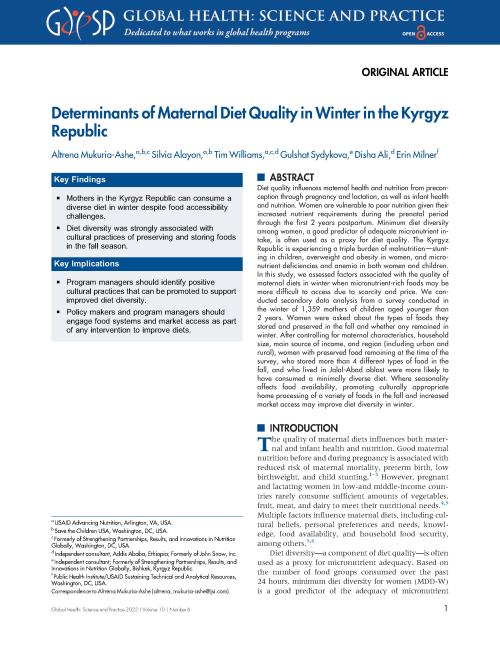Diet quality influences maternal health and nutrition from preconception through pregnancy and lactation, as well as infant health and nutrition. Minimum diet diversity among women, a good predictor of adequate micronutrient intake, is often used as a proxy for diet quality. In this study, we assessed factors associated with the quality of maternal diets in winter when micronutrient-rich foods may be more difficult to access due to scarcity and price. We conducted secondary data analysis from a survey conducted in the winter of 1,359 mothers of children aged younger than 2 years. Women were asked about the types of foods they stored and preserved in the fall and whether any remained in winter. After controlling for maternal characteristics, household size, main source of income, and region (including urban and rural), women with preserved food remaining at the time of the survey, who stored more than 4 different types of food in the fall, and who lived in Jalal-Abad oblast were more likely to have consumed a minimally diverse diet. Where seasonality affects food availability, promoting culturally appropriate home processing of a variety of foods in the fall and increased market access may improve diet diversity in winter.
